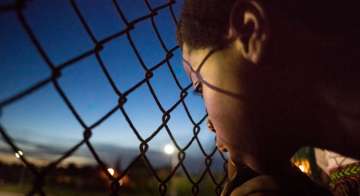Sri Lanka marks 10 years since end of civil war; sees serious divisions among multi-ethnic, multi-religious society
The anti-Muslim violence that followed three weeks after the Easter Sunday blasts was a dangerous reminder of the 1983 riots against the Tamil community, where mobs made up of members of the majority ethnic group Sinhalese burned Tamil homes and businesses to the ground.

As Sri Lanka on Saturday marked the 10-year anniversary since its brutal civil war came to an end, the country finds itself again at a crossroads following the Easter Sunday bombings that ripped through the nations fragile peace and fuelled some of the islands worst fears of returning to violence.
The island nation was set to commemorate the end of the bloody armed conflict between the government and the insurgent group known as the Liberation Tigers of Tamil-Eelam (LTTE). The 30-year-long war, fought in the north and east of the country, has brought about serious divisions among a multi-ethnic and multi-religious society, reported Efe news.
The anti-Muslim violence that followed three weeks after the Easter Sunday blasts was a dangerous reminder of the 1983 riots against the Tamil community, where mobs made up of members of the majority ethnic group Sinhalese burned Tamil homes and businesses to the ground.
The Easter Sunday bombs have opened a new front for this already polarized community, said Sri Lankan political commentator Kusal Perera.
"There is now a triangular polarization in society. The polarization between the Sinhala and the Tamil communities still exists and now there is Sinhala-Muslim conflict as well, which is further compounded by a Tamil-Muslim polarization," he said.
The Sri Lankan government, which claimed a military victory against the armed group in 2009, has been slow when it comes to working toward reconciliation and reparation.
"There has been no effort by the victor - the Sinhalese government - to offer any political solutions to the Tamil community," Perera said. "Although the idea of reconciliation has been floated around, it has been without a political solution, largely limited to Colombo-centric efforts and infrastructure development."
"The core issues concerning the Tamil community, which was directly affected by the war, have yet to be addressed," he added. "The current government, which came in with the promise of delivering solutions, has failed to deliver on the problems of missing persons, land issues and militarization."
Human rights activist Marisa Desilva, who works with communities in the north and east, said that even after a decade has passed since the end of the civil war, "the Tamil conflict remains unresolved."
"Families of the disappeared and people struggling to return to their lands occupied by the military have continuously protested on the streets, some for more than two years now," she said. "The Yahapalanaya (Good Governance) government elected in 2015 on the promise of change and reform has failed miserably in delivering any lasting solution to the national question, not being able to even deliver on basics such as constitutional and security reforms."
While most of the political issues of the community remain unsolved, psychosocial problems stemming from exposure to decades of violence and conflict have also gone unaddressed. The Easter Sunday attacks have triggered these traumatic experiences for many who lived through the war.
In Vanni, the area most affected by the 30-year conflict, many are staying away from even the villages' Hindu temples. Consultant psychiatrist S. Sivayokan said he felt this reaction was disproportionate to the Easter Sunday attacks.
Fears of further attacks have kept many citizens of the country away from public places, even in areas over 300 km (186 miles) away from Colombo, where most of the blasts took place.
"The attacks on April 21 have triggered the post-traumatic stress disorder issues that many in the community exposed to the war have," he said.
Many have "re-experienced" their trauma caused by wartime horrors since the Easter Sunday blasts. The community that was most affected by the attacks was provided little assistance to deal with the traumatic experiences of 30 years of war, with authorities paying very little attention to the psychosocial wellbeing of those dealing with PTSD even 10 years after the conflict subdued.
While some individuals have recovered from the trauma they faced, many "are still suffering and unable to cope."
The current psychosis of fear is being used by the military to regain lost ground, Perera claimed.
"The fear psychosis of believing that the new group is capable of bombing anywhere is further militarizing society," she said.
In the aftermath of the attacks and subsequent anti-Muslim violence, the military has deployed a large number of troops in an attempt to control the situation, with over 7,000 armed personnel being deployed in the North Western Province alone.
"We observe that there are multiple checkpoints appearing in the post-conflict areas, where even the Tamil community - which had earlier asked for less military presence - calling for military support again," Perera added.
However, Perera said she viewed this as part of the current government's failure to take control of the situation.
Both the government and the military have given repeated assurances of security and safety being established in all parts of the island.
Army Commander Lt Gen. Mahesh Senanayake on Thursday said that the military would maintain the country's "hard-won peace" as it tackles the new threat of global terrorism.